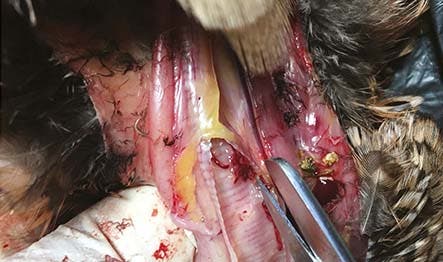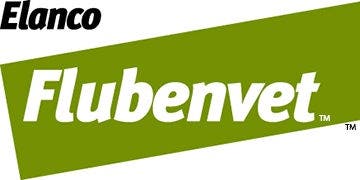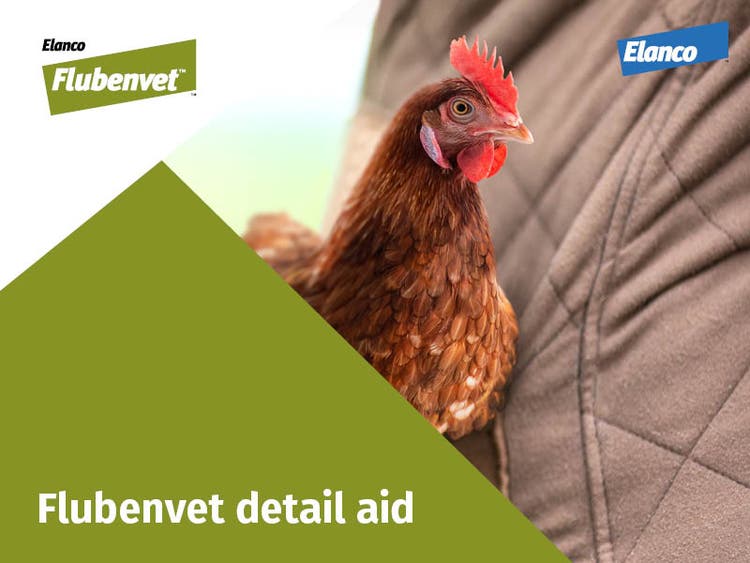Don’t underestimate the damage from parasitic worms
Studies have found that all estates across the country are infected with worms, with young birds being particularly susceptible. Gapeworms are arguably the most important species to control in gamebirds.
Keeping birds in tip top condition, whether for breeding purposes or to ensure maximum performance in the field is always going to be a challenge. There are many nutritional, environmental and parasitic challenges that they face on a daily basis, however the damage that parasitic worms can do is an area that is probably under estimated.
Whether you intend to buy in eggs or poults this spring, or hatch your own chicks, ensuring that hens are free of worms supports optimal hatchability and productivity1. Overwintered hens can carry a worm burden into the next season. When these hens are caught up ahead of laying, their stocking density increases and consequentially their parasitic challenge also rises. Without implementing a strategic worming plan, this can impact hens’ ability to fight other diseases as worm infestations can suppress their immune systems2.
Studies have found that all estates across the country are infected with worms, with young birds being particularly susceptible3. Therefore, it is important to ensure that laying and rearing pens are set up on clean ground and equipment is disinfected before use, as this will reduce the immediate risk of exposure to high worm burdens in the pen. As soon as laying stock are brought in, hens should then be treated with wormer to control their parasitic challenge. Flubenvet™ is the only licensed gamebird wormer that is active against all life stages of all major worm species4. In addition to a proactive worming strategy that targets the whole worm lifecycle, it is key to remember that worm eggs or larvae can be brought onto the premises via staff clothing, footwear, feed bags, wild birds, litter and many more, so practicing good hygiene and biosecurity can help control the worm challenge.
Gapeworms are arguably the most important species to control.

Gapeworms (Syngamus trachea) are arguably the most important worm species to control in gamebirds, as they are a major cause of respiratory infections and mortality in pheasants and partridges. These worms inhabit the lungs and windpipes of birds, causing them to ‘gape’ or ‘snick’ while struggling to breathe. Flubenvet™ is the only dewormer that is effective against all life stages (including eggs, larvae and adults) of gapeworms, as well as roundworms, hairworms and caecal worms4. Immature, fast-developing gapeworms are particularly susceptible to Flubenvet’s mode of action. Once ingested by birds, it takes 21 days for gapeworm eggs to reappear in the birds’ faeces (the prepatent period), hence it is important to repeat Flubenvet treatments every 3 weeks (e.g. week 3, week 7 and week 11 of rearing).
When weather conditions are wet, then it’s likely that birds will seek water from puddles instead of drinkers. Therefore, using Flubenvet in your birds’ feed will allow you to be assured that your birds are getting their full worming treatment. However, current high feed prices may compromise your ability to invest more in your feed. To help sustain your business, Elanco has partnered with a new manufacturer to offer Flubenvet, the industry’s leading dewormer5, at a more cost effective price.
Speak to your feed supplier today to find out more.
More Materials

Flubenvet™ 5% w/w premix for medicated feeding stuff.
A broad spectrum oral anthelmintic containing Flubendazole.

Flubenvet detail aid
Discover more about how worms affect the health and welfare of your birds.
- Game & Wildlife Conservation Trust (2003). Pheasant Parasites [online]
- Madden, J.R., Hall, A. and Whiteside, M.A. (2018). Why do many pheasants released in the UK die, and how can we best reduce their natural mortality? European Journal of Wildlife Research, 64(40), pp.1-13.
- Draycott, R.A., Parish, D.M., Woodburn, M.I. and Carroll, J.P. (2000). Spring survey of the parasite Heterakis gallinarum in wild-living pheasants in Britain. Veterinary Record, 147, pp.245-246.
- Flubenvet SPC.
- Elanco Market Research Flubenvet Lifecycle Study UK 2021